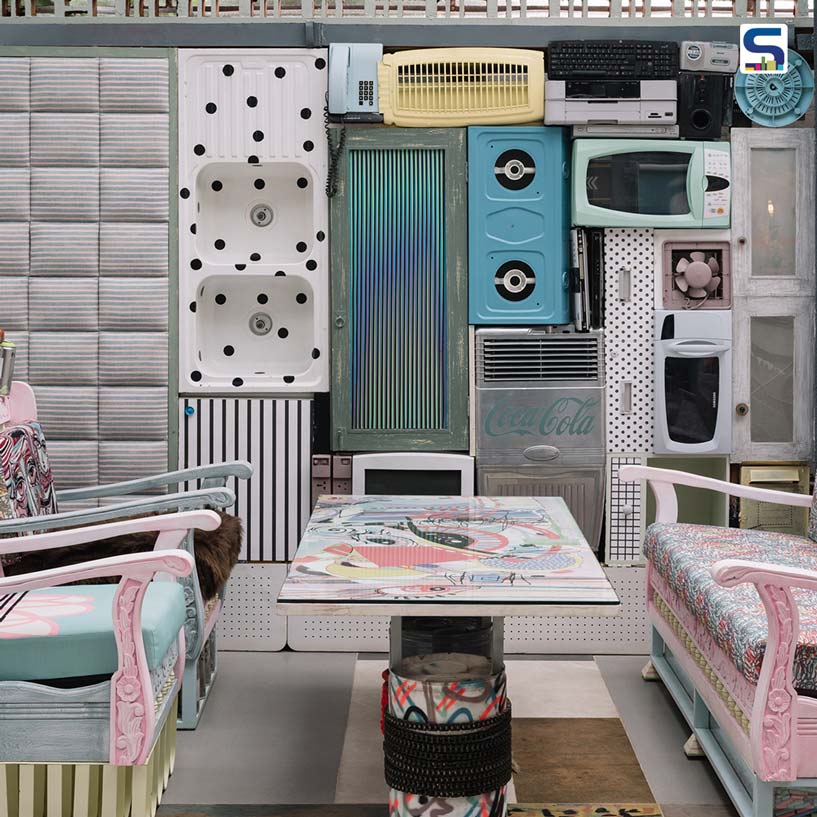
The Circus Canteen is an innovative restaurant interior crafted by Multitude of Sins studio in Bengaluru. This exceptional design, created from an array of repurposed materials including discarded bicycle bells and cassette tape boxes, emerges from a fusion of nostalgia and wanderlust. Drawing inspiration from the vivacity of the circus, where ordinary transforms into extraordinary, the restaurant is a celebration of unconventional creativity. Know more about it on SURFACES REPORTER (SR).
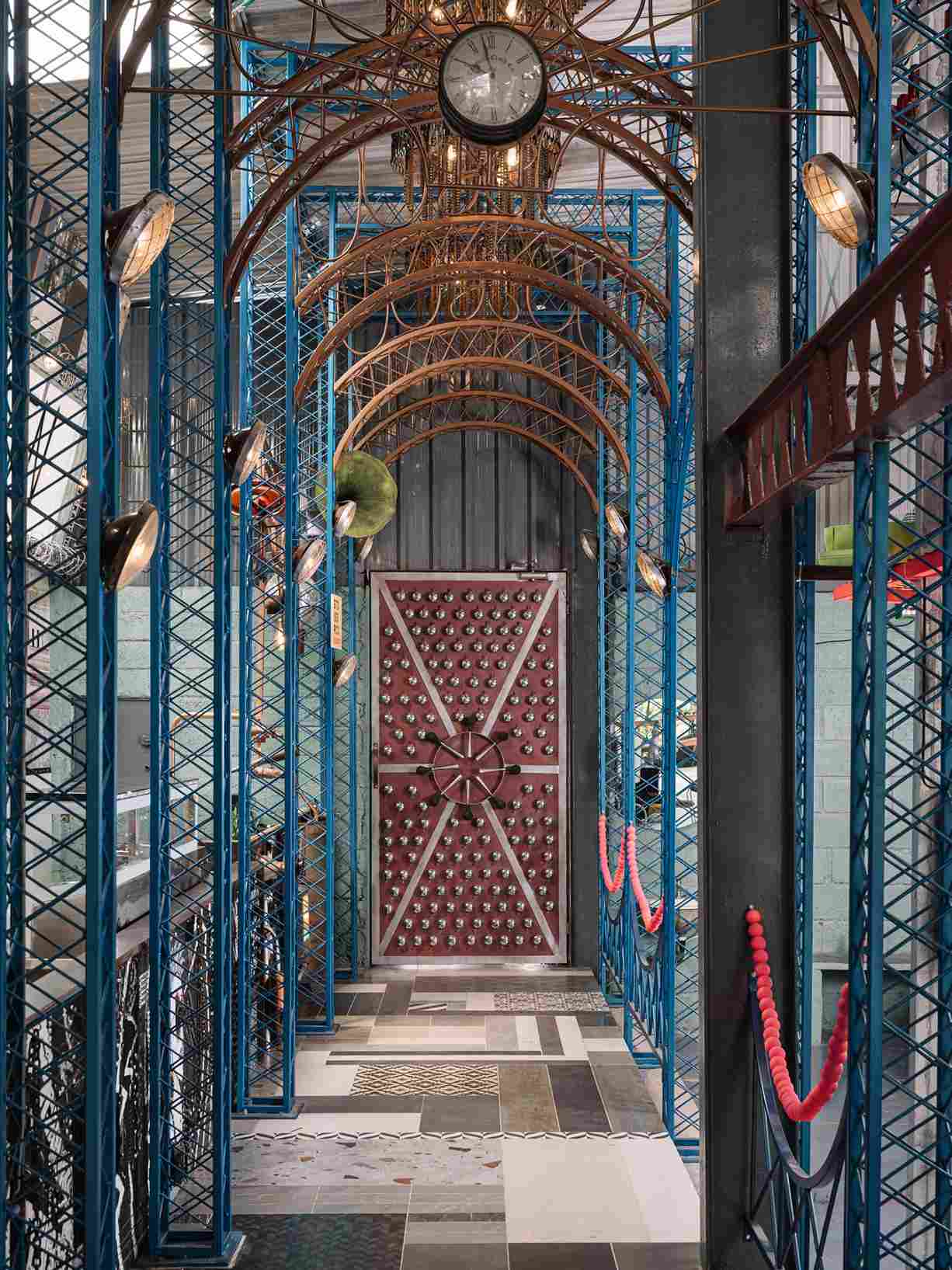
This entrance leads through a series of teal-hued labyrinthine archways made from reclaimed scrap metal.
The studio embarked on a city-wide waste donation drive spanning several weeks to source the components that form the The Circus Canteen’s interior. These materials were carefully sorted into distinct categories, ranging from home appliances to toy cars. The result is an eclectic interior showcasing mismatched furniture and flooring. Remarkably, less than 10 per cent of the interior’s materials were newly sourced. Reportedly, as per Smita Thomas, Founder, Multitude of Sins, the concept for The Circus Canteen was driven by the idea of creating a curated collage from unwanted items.
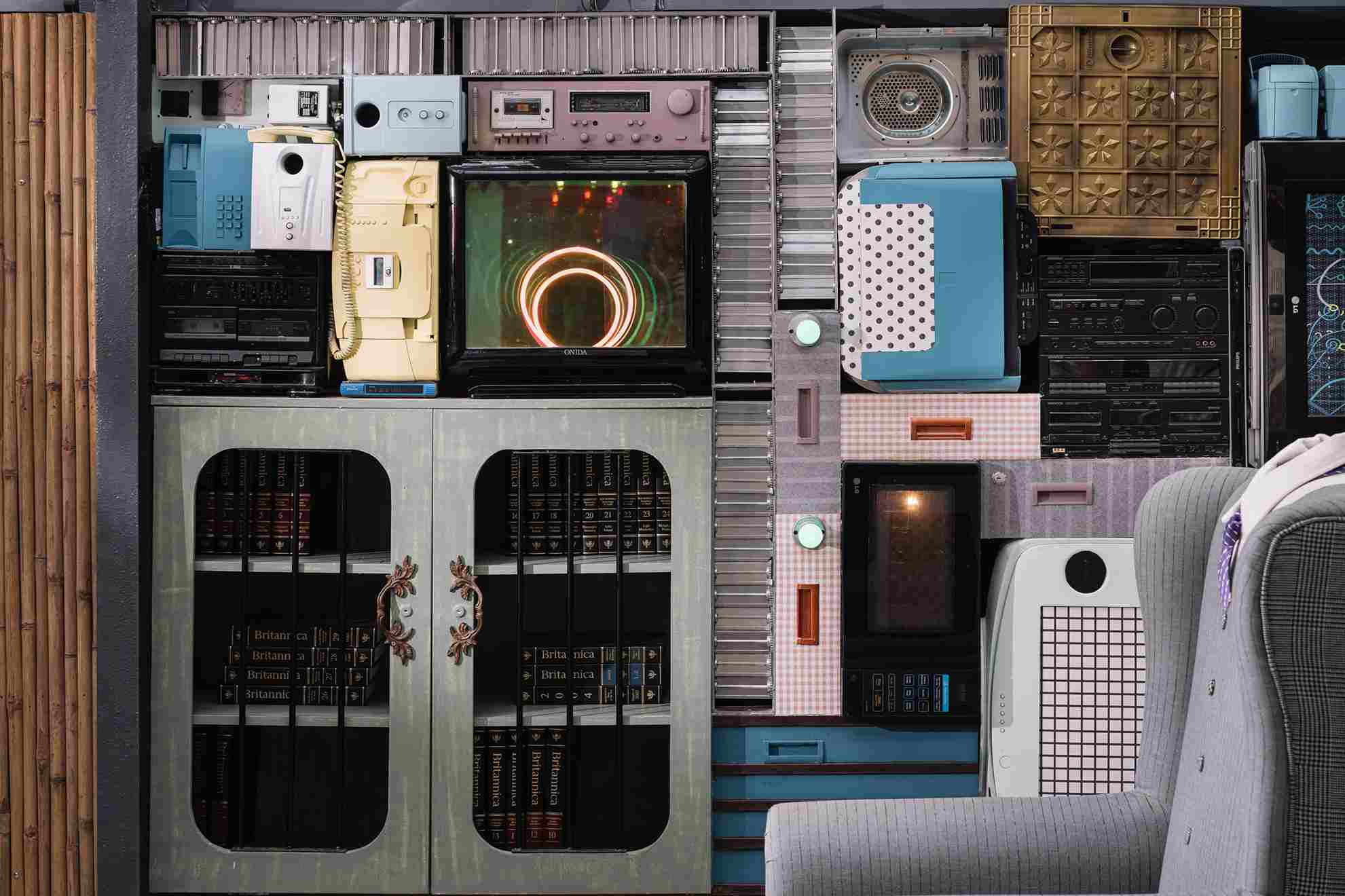
The studio embarked on a city-wide waste donation drive spanning several weeks to source the components that form the The Circus Canteen’s interior.
Entering the restaurant, visitors encounter a vibrant scarlet door adorned with discarded bicycle bells and playful hand horns. This entrance leads through a series of teal-hued labyrinthine archways made from reclaimed scrap metal. Chandeliers made from disassembled bicycle chains and old vehicle headlights illuminate these archways in a unique fashion. Inside, the dining area, spanning two levels, is furnished with custom tables and seating that double as captivating installations. Abandoned sofas, outdated bathroom ventilators and colourful coffee tables crafted from sliced oil barrels topped with glass surfaces have been repurposed to create these booths. Each table offers a journey, where waste metamorphoses into functional artistry.
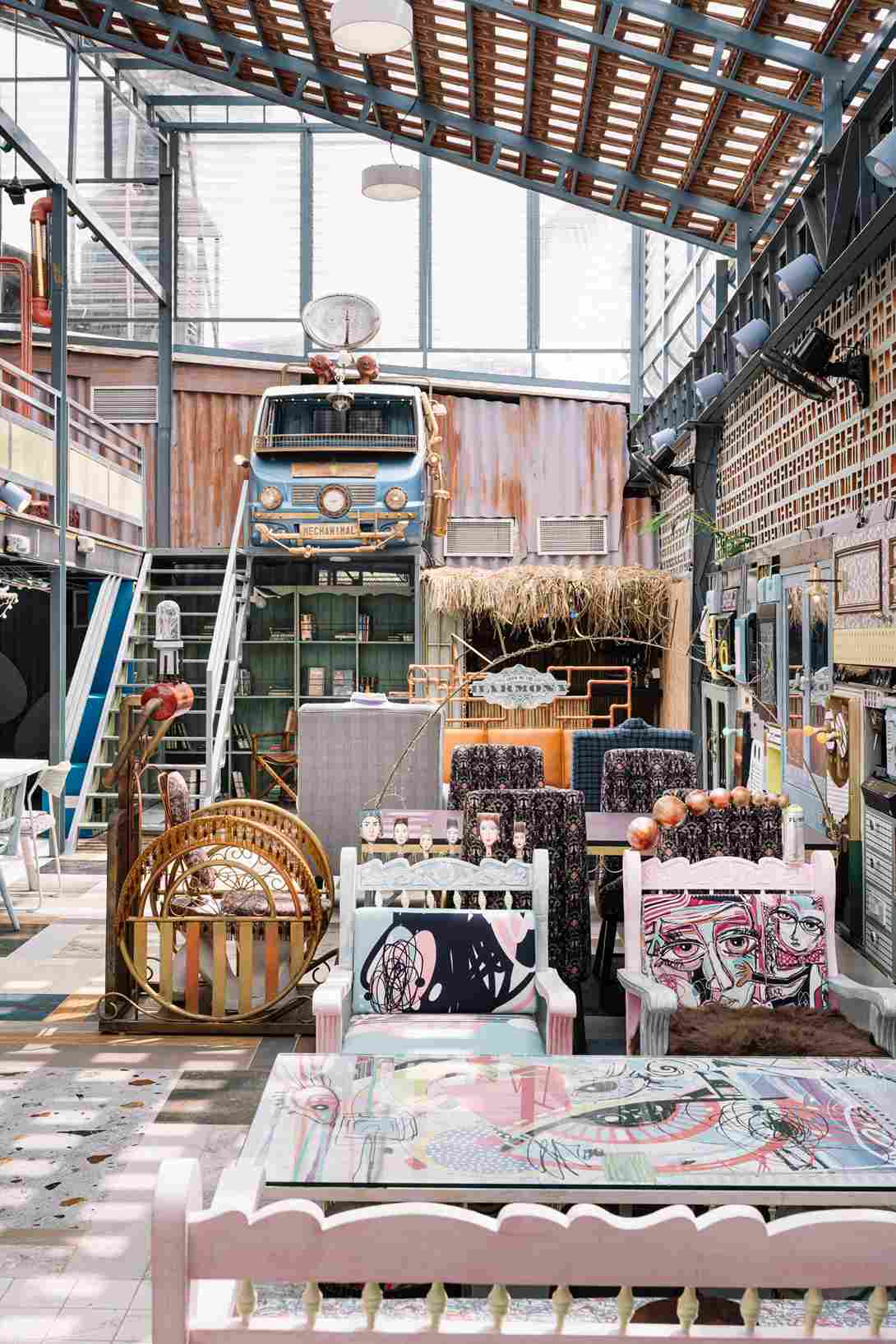
Crafted from a truck’s bare shell sourced from a city scrapyard, this post-apocalyptic time machine features discarded car parts, fire extinguishers, a satellite dish and scrap metal.
The restaurant’s flooring features a mosaic-style arrangement of sample tiles from ceramics stores, while the kitchen serving hatch is framed by a vibrant array of obsolete cassette tape boxes.. A captivating backdrop, crafted from a medley of abandoned wallpaper swatches, adorns the food counter, playing with colours and patterns. The focal collage wall is a harmonious blend of e-waste, discarded fixtures, and furniture, forming a whimsically conceived jigsaw of waste. Overhead, a neon-tubed floral chandelier flourishes in the lounge area, its brilliance intensifying as the day transitions into evening.
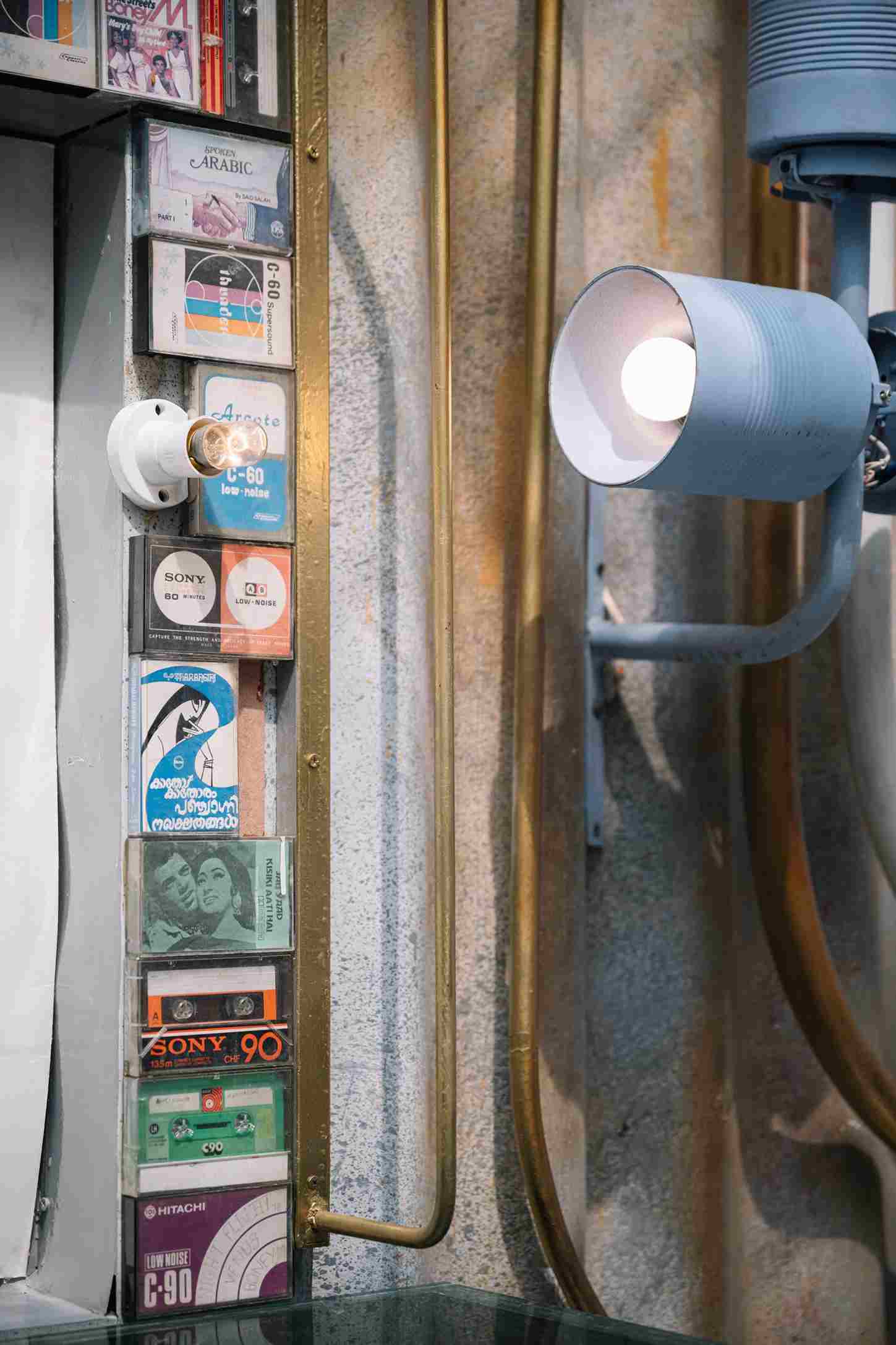
The restaurant’s flooring features a mosaic-style arrangement of sample tiles from ceramics stores, while the kitchen serving hatch is framed by a vibrant array of obsolete cassette tape boxes.
The core of the layout features a grand community table that gracefully embraces a structural column, expanding organically around it. The reclaimed pine wood top is adorned in white, with white and lilac dual-toned legs, once adjustable aluminium furniture legs from an office space. The chairs flaunt vibrant printed fabrics.
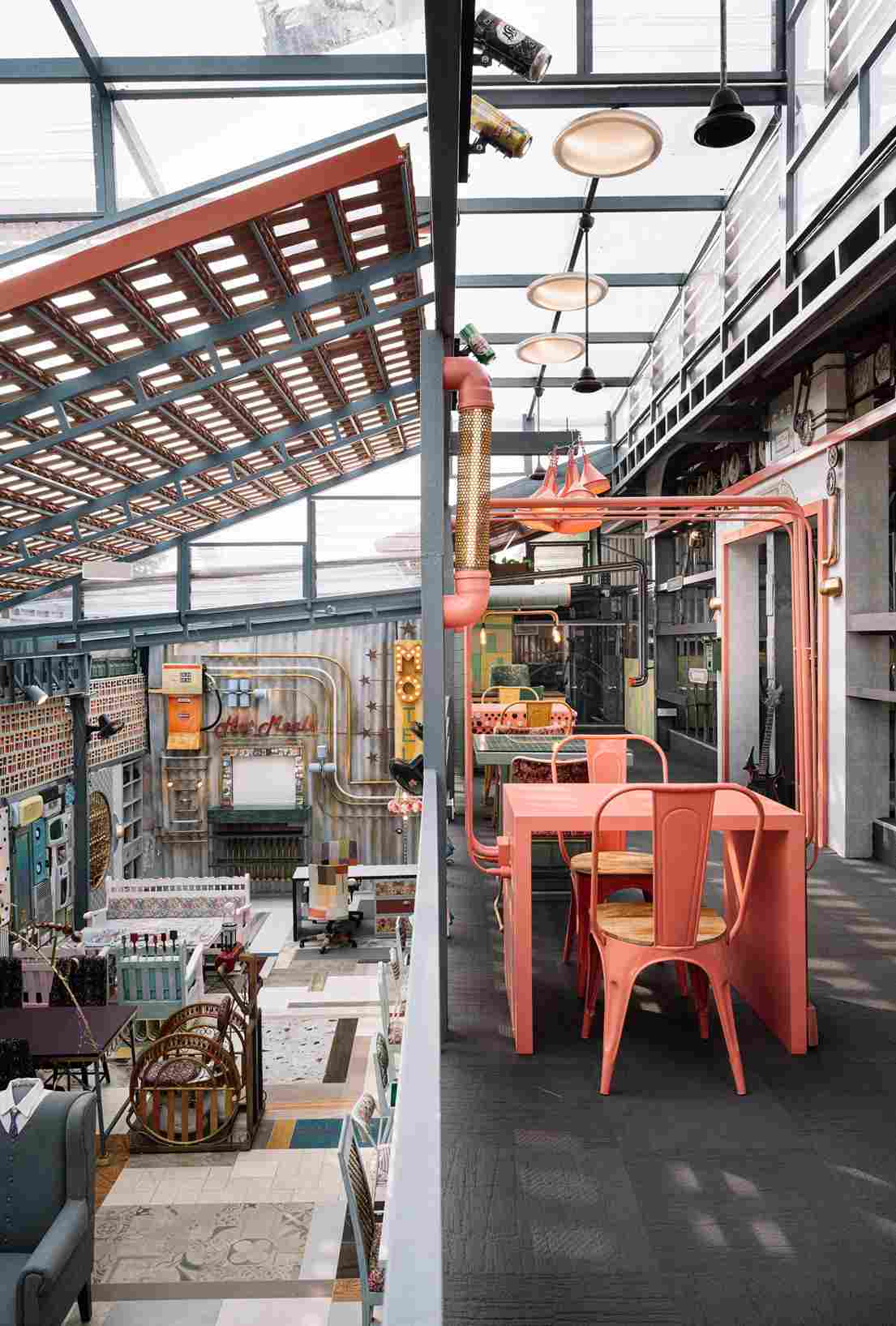
The focal collage wall is a harmonious blend of e-waste, discarded fixtures, and furniture, forming a whimsically conceived jigsaw of waste.
Motivated by a commitment to create an eatery with a minimal carbon footprint, the studio addresses the increasing concern within the design industry regarding wastefulness. This initiative showcases the studio’s creativity and resourcefulness in turning donated waste into functional art. The most delightful element of The Circus Canteen is the caravan. Crafted from a truck’s bare shell sourced from a city scrapyard, this post-apocalyptic time machine features discarded car parts, fire extinguishers, a satellite dish and scrap metal.
Image credit: Ishita Sitwala